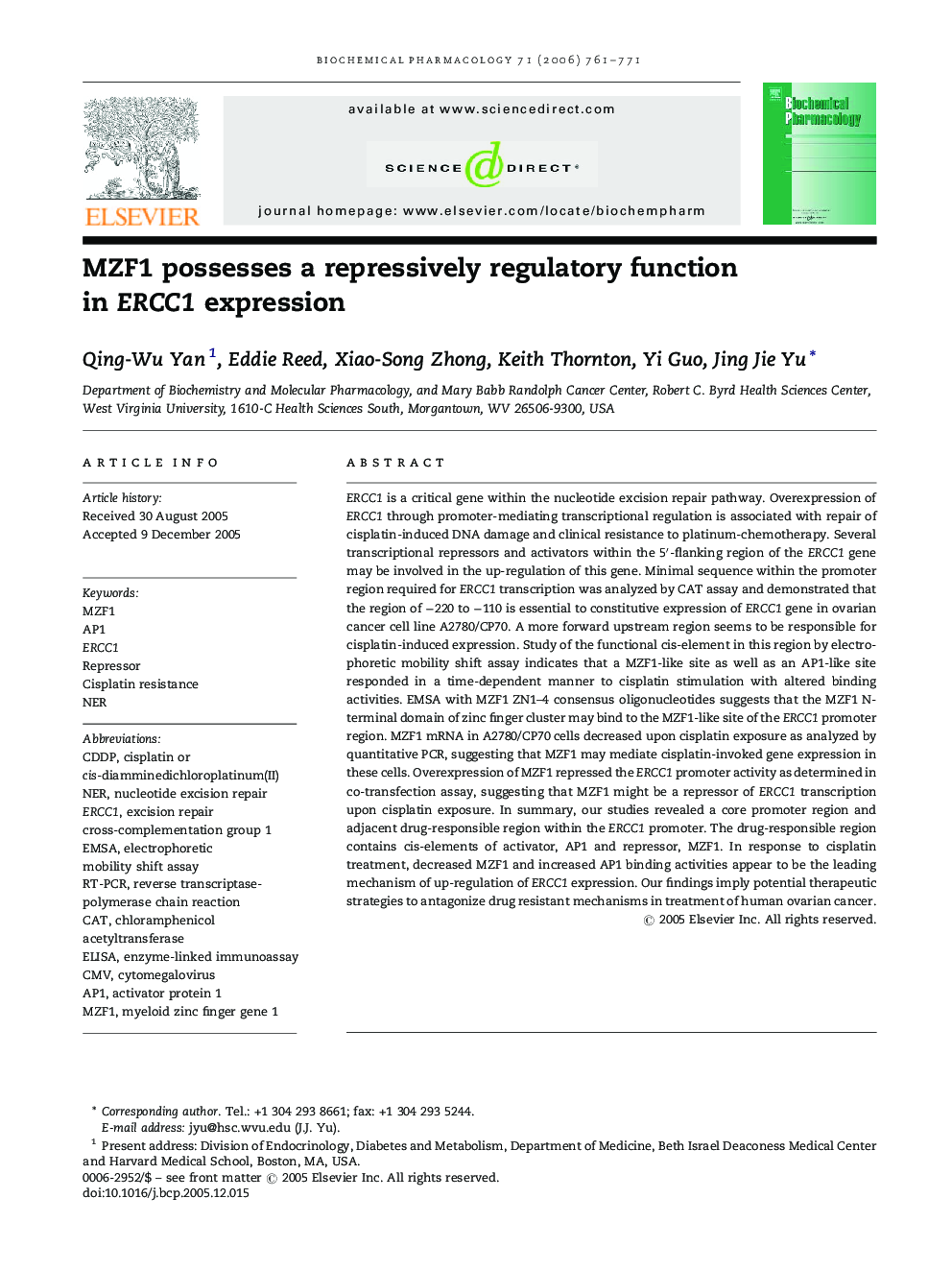| Article ID | Journal | Published Year | Pages | File Type |
|---|---|---|---|---|
| 2515581 | Biochemical Pharmacology | 2006 | 11 Pages |
ERCC1 is a critical gene within the nucleotide excision repair pathway. Overexpression of ERCC1 through promoter-mediating transcriptional regulation is associated with repair of cisplatin-induced DNA damage and clinical resistance to platinum-chemotherapy. Several transcriptional repressors and activators within the 5′-flanking region of the ERCC1 gene may be involved in the up-regulation of this gene. Minimal sequence within the promoter region required for ERCC1 transcription was analyzed by CAT assay and demonstrated that the region of −220 to −110 is essential to constitutive expression of ERCC1 gene in ovarian cancer cell line A2780/CP70. A more forward upstream region seems to be responsible for cisplatin-induced expression. Study of the functional cis-element in this region by electrophoretic mobility shift assay indicates that a MZF1-like site as well as an AP1-like site responded in a time-dependent manner to cisplatin stimulation with altered binding activities. EMSA with MZF1 ZN1–4 consensus oligonucleotides suggests that the MZF1 N-terminal domain of zinc finger cluster may bind to the MZF1-like site of the ERCC1 promoter region. MZF1 mRNA in A2780/CP70 cells decreased upon cisplatin exposure as analyzed by quantitative PCR, suggesting that MZF1 may mediate cisplatin-invoked gene expression in these cells. Overexpression of MZF1 repressed the ERCC1 promoter activity as determined in co-transfection assay, suggesting that MZF1 might be a repressor of ERCC1 transcription upon cisplatin exposure. In summary, our studies revealed a core promoter region and adjacent drug-responsible region within the ERCC1 promoter. The drug-responsible region contains cis-elements of activator, AP1 and repressor, MZF1. In response to cisplatin treatment, decreased MZF1 and increased AP1 binding activities appear to be the leading mechanism of up-regulation of ERCC1 expression. Our findings imply potential therapeutic strategies to antagonize drug resistant mechanisms in treatment of human ovarian cancer.
